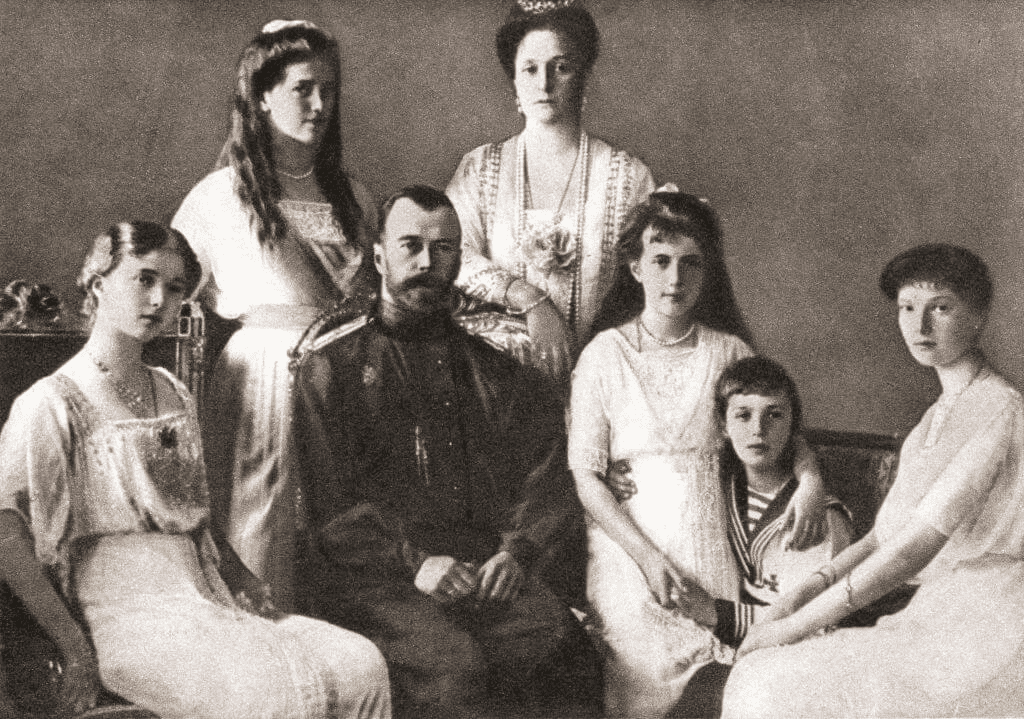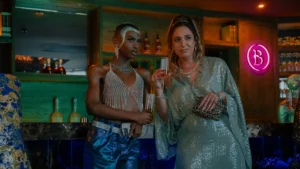Summary
“The Chosen One” gets Netflix’s ambitious new docuseries off to a fine start, perfectly marrying drama and documentary to transporting effect.
This The Last Czars Episode 1 recap for the episode titled “The Chosen One” contains spoilers.
The best word for Netflix’s new six-part docuseries on the downfall of Russia’s Romanov dynasty is ambitious. It’s an ambitious subject, full of social upheaval, sex, romance, politics, and assassination. And it’s an ambitious format, mixing scripted, well-funded dramatic reenactment with expert historical testimony. The Last Czars Episode 1, fittingly titled “The Chosen One”, proves that the hybrid style doesn’t just work — it works remarkably well.
The chosen one of the title is Czar Nicholas II (Robert Jack), a young man ill-equipped for dynastic rule who nonetheless finds himself inheriting the unknowable wealth and limitless power of his family’s empire, which spans a huge swathe of the globe and incorporates so many political and social responsibilities that it’s ridiculous to suggest that any one man, much less a 26-year-old one, might be suitable for the position.
Nicholas is wed to Empress Alexandra Feodorovna, or Alix of Hesse, the German granddaughter of England’s Queen Victoria. Played by Susanna Herbert, she’s a passionate royal who married for love — she and her husband share a marital bed, which was rare at the time. And they’re sharing that bed ten minutes into “The Chosen One”, thus proving that The Last Czars isn’t interested in beating around the bush when it comes to telling this particular story.
The Last Czars episode 1 also wastes little time in introducing Rasputin (Ben Cartwright), a “fearless”, “ungovernable” peasant whom we meet while being forced to undertake a pilgrimage. We see this on fast-forward, in a picturesque, outdoorsy montage that segues directly into archive footage and explanations of Russia’s rapid industrialization at the turn of the 20th Century. That change towards modernity and democracy is part of the matter of Nicholas’s first speech as Czar, where he must embrace change, or remain steadfast in “sacred autocracy”, heavily influenced by his right-wing hardliner Uncle, Sergei. He chooses the latter.

Rasputin, still on pilgrimage, visits many monasteries, embracing religion but rejecting strict Russian orthodoxy. He’s attracted to freer, more passionate expressions of spirituality, and gravitates towards an underground sect known as the Khlysts, who have naked orgies. You can see the appeal. And it’s perfectly suited to a man of voracious appetites like Rasputin, who defines his own faith as sinning and then atoning for those sins in order to be saved. Whatever else might be said about the man, he certainly wasn’t stupid.
To celebrate the coronation of Nicholas and Alexandra, a public gift-giving feast is organized to appease the peasantry — organized, poorly, by Sergei. It’s a disaster and erupts quickly into carnage, with thousands of Moscovites being trampled to death as the coronation, a ludicrously opulent celebration, takes place. Its purpose is to make clear that the Czar’s power comes directly from God, a premise that Nicholas readily accepts. “The Chosen One”, indeed.
What Nicholas struggles to accept is news of the many deaths that occurred during the feast, but under the advice of Sergei, he doesn’t acknowledge them. “Where you lead, others follow,” says the older man, as thousands of dead are piled into carts so that the royals can tour the same fields where their subjects were just trampled to death. Instead of doing the political thing, touring hospitals and expressing sympathy, Nicholas instead, against his better judgment, attends a swanky party. As Sergei says, “There’s no room for sentimentality in politics.” Nonetheless, on just the first day of his reign, Nicholas becomes known as Nicholas the Bloody.
Meanwhile in The Last Czars Episode 1, Rasputin is taken in by a peasant family, where he heals a sickly old man, thus becoming more convinced of his own power as a healer. What’s indisputable is his power as a womanizer. People — young, impressionable women in particular — are transfixed by his charisma, and by his new, unorthodox faith that permits — nay encourages — sin. His appeal is obvious, his reputation beginning to grow; and this will ultimately matter to Nicholas and Alexandra, who, after four children, have still failed to produce an heir.
Upon the birth of their fourth child, Anastasia, Nicholas makes a good point: “A son would belong to the people. A little girl is ours.” We return, briefly, to the framing device of The Last Czars Episode 1, in which a grown-up woman purports to be Anastasia, having apparently survived her family’s execution. Perhaps “The Chosen One” doesn’t refer to Nicholas after all? And yet, at the time, there was no consideration of the fact that the Romanovs might be prolonged through a daughter. They needed a son. And the inability to produce one led Nicholas and Alexandra to desperation — and to Rasputin.




